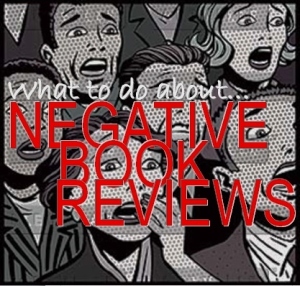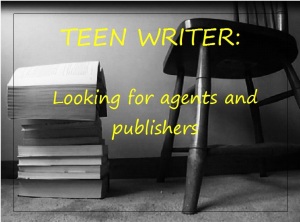Yeah. This sucks. I’m not going to lie. When you see that lonely little one star rating followed by some pretty hurtful words, it’s enough to bring any author to tears. But I’m going to tell you something that if you’re published you already know and if you’re not you might as well find out now.
Everyone gets bad reviews.
Everyone.
Even the Harry Potter books have a few one star reviews scattered between the millions of five star ones. I mean, seriously, how is that even possible?
What I’m trying to say is that when you get bad reviews (and you will!) don’t take it too hard. This post is for those of you who have gotten some bad reviews and are in need of some serious emotional support, or those of you who are worried about getting those bad reviews when your book hits the shelves.
I recently gotten some pretty scathing reviews on my latest book that came out. And by scathing I mean something along the lines of, “this book is awful and should never have been written.” Now, that’s nothing any author ever wants to hear about something they’ve written. But this type of thing is inevitable so here are some tips on surviving when those awful, nasty reviews start tumbling in.
Don’t take it too seriously
Now, I understand this is one of the most clichéd pieces of advice ever given, and it’s definitely easier said than done, but it’s true. Remember, the reviewing isn’t taking a stab at you personally. They’re not going, “this author is terrible, they suck, I hate them.” No, they’re talking about your book. And yes, you’re book is your baby, but remember that (most of the time) they are just being honest and not trying to hurt your feelings.
Ever read any books you hated?
I know you have. We all have. I’ve read books that everyone around me loved and yet I just didn’t see it. Would you falsely give a book you didn’t like a better rating? Or would you rather be honest and constructive in your feedback? Remember, this is just the opinion of one person and we’re all entitled to our own opinions.
Since you’ve been on the receiving end of negative reviews, you have a chance to be a really constructive and helpful negative-review-writer when you come up against some books you just don’t click with.
Remember why you write.
Take a step back and ask yourself one simple question: why do you write? If the answer is just for glorification then you probably shouldn’t be doing it. Writers write because they love to do it, not because they want loads of money and attention. Sure, those things are nice, but they’re not the real driving force behind the tears, sweat, love, and frustration that goes into creating a novel. Just remember that you write because you love it. You love writing, you love your books, and you love putting them out there, even if there are some people who don’t appreciate it.
Revisit those good reviews
So you got some bad reviews. But you got some good ones stashed away in there too, right? I remember getting my first one star review for my newest novel. The one I mentioned up at the beginning, remember? I’m going to be honest, this review nearly made me cry. I shouldn’t have been so hurt, but I was. And I spent at least a few days mulling over that review in my mind, wondering why on earth this person didn’t like my book and what I could do about it. And finally I came to the conclusion that there really is absolutely nothing I could do about it. So why worry? Instead, I looked back on the really nice five star reviews that I’d gotten, some of them really touching and praiseworthy. Those were the reviews that mattered to me because those were the people I’d been writing my book for. They were the ones who mattered.
Stop reading negative reviews.
Remember how I mentioned I obsessed about that one star review for a few days? Well, by obsessed, I mean that I read it more than once. A few times, actually.
Don’t do that!
Now, I definitely encourage reading negative reviews that provide constructive criticism. If they mention a character was flat or a story arc needed improvement, you can find ways to better your writing in the future. But if the review is basically just a rant on how terrible your book is, don’t read it. You can usually tell within the first sentence or two which type of negative review this is going to be, and if it’s the latter, stay clear.
Your worth is not summed up in that pesky one star review.
Your novel is a huge, wonderful accomplishment. You labored over the writing, the editing, and not only did you write a novel, you published one. There will be good days and bad days, so don’t let those negative reviews get you down. Keep writing and keep publishing!
And remember – since there’s been a lot of hate going around, especially on Goodreads, between authors and reviewers and whatnot – we all love books and we all love to write them, read them, review them, and talk about them. We’re not here to point fingers at authors or reviewers. We’re here to share our love of books. We all have different opinions and it’s a wonderful, lovely thing.
Thanks for reading and have an absolutely marvelous day!

